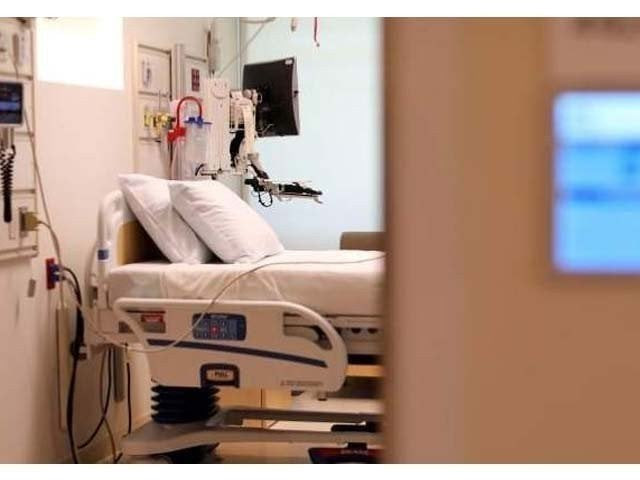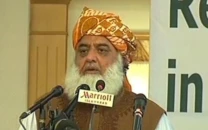Bed capacity of capital’s hospitals to be doubled
Imran wants administrative, legislative bottlenecks identified

PHOTO:REUTERS
He stated this as he chaired a briefing at PM Office on health reforms being undertaken in the Islamabad Capital Territory (ICT), Punjaband Khyber-Pakhtunkhwa (K-P) — where the ruling Pakistan Tehreek-e-Insaf (PTI) is in power.
The federal health secretary briefed the premier on the national action plan for National Health Services, Regulations and Coordination (NHSR&C) for 2019-2025, and the Islamabad Capital Health Strategy, NHSR&C Strategic Plan.
The secretary said that the plan was being developed by the health ministry after the federal government had abolished the Capital Administration and Development Division (CADD) and all health-related matters in ICT were transferred to the federal health ministry.
The health official said that for the past 55 years, the capacity of the city’s hospitals had remained stagnant at just 2,000 beds. But under the new health strategy for the federal capital, this capacity would be doubled to 4,000 beds within five years.
Number of beds doubled in LGH gynecology ward
Moreover, a modern cancer hospital with 200 beds was being built in the city. Separately, a general hospital at Tarlai with 200 beds was being built, three Mother and Child Hospitals with a total of 120 beds were being set up and upgraded in Bara Kahu, Rawat and Tarnol.
Further, all rural health centres and basic health units of the ICT were being refurbished and upgraded. This process is expected to be completed by June 2020.
The federal health secretary further said that a recruitment process for new staff, particularly nurses, is being launched in all hospitals of the city to address workforce shortages. Moreover, nursing and associated medical sciences universities were being set up in the ICT to permanently address staff shortages.
The meeting was also told that in light of recommendations made by the task force on health, an Islamabad Public Health Management Authority was being established.
K-P health
Khyber-Pakhtunkhwa (K-P) Health Minister Dr Hisham Inamullah Khan briefed the meeting on the reforms introduced by the provincial health ministry during the first 100-days of the government there.
He said that they were expanding coverage of the Sehat Insaf Cards, assessing inputs in all health facilities according to the new services package, preparing to establish a human resources unit in the health department and strengthening of health care centres, Moreover, they have achieved 95 per cent coverage for measles immunisation, inception of community-based complaints and grievance management systems and media cell, procuring management information systems (MIS) and inventory management systems.
Dr Hisham added that around £3.2 million have been released to achieve the 100 per cent targets set by UK’s Department for International Development (DFID), while an additional £3.2 million were for drafting K-P’s health policy.
An amendment to the Medical Teaching Institutes (MTI) Act, policies on the quality of medicines and initiation of public-private partnerships with pharmaceutical companies to provide free care to around 0.5 million patients for four non-communicable diseases.
Health facility: RIUKT construction project stalled due to paucity of funds
Punjab health
Punjab Health Minister Dr Yasmin Rashid said that they will be issuing Sehat Insaf Cards. Initially, the cards will be launched in four southern districts of the province including Dera Ghazi Khan, Rajanpur, Lodhran and Multan. The cards will be issued by the end of December 2018.
She added that five mother and child hospitals are being set up in the province along with a nursing college.
Further, steps were being taken for strengthening and building the capacity of the human resource. Dr Rashid added that measures are being for prioritising healthcare projects across the province.
The prime minister stressed the need of eliminating those practices which have caused decay in health services and have hindered the provision of quality healthcare to the public.
Imran also highlighted the significance of modern laboratories and to devise a comprehensive mechanism to check the food contamination leading to stunted growth and other health hazards in coordination with the concerned authorities at the federal and provincial levels.
He observed that health management remained a neglected area in the country and that there was a need to ensure effective and robust health management mechanism across the country to provide quality healthcare to citizens.
Published in The Express Tribune, December 13th, 2018.



















COMMENTS
Comments are moderated and generally will be posted if they are on-topic and not abusive.
For more information, please see our Comments FAQ